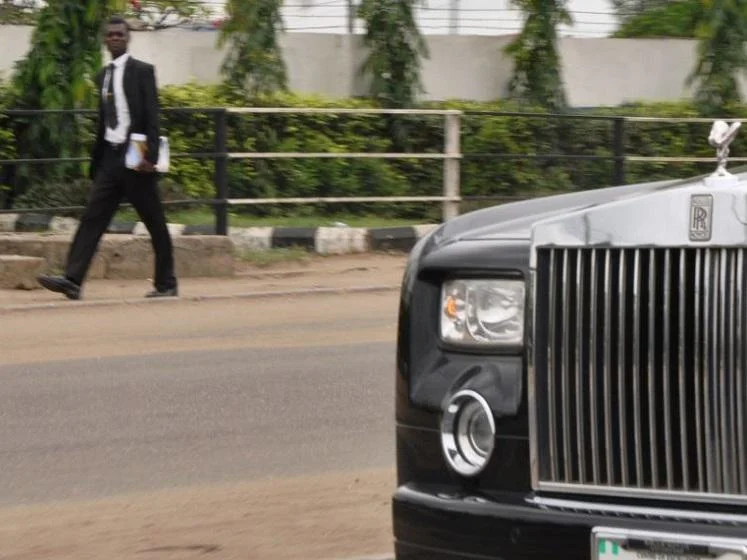Life of luxury

What does luxury culture tell us about African society? Dr Simidele Dosekun explains why her book answers important questions about consumption and inequality on the continent of Africa.
Dr Dosekun spent her formative years growing up in Lagos, Nigeria, living amongst the middle and upper-class social milieus of the African west coast metropolis. This experience gave her an understanding of her country and identity as she went on to pursue her academic studies and career in Europe and America.
"I am a member of a relatively privileged demographic of African society. But after living in the UK and elsewhere for around 20 years, I felt the way that Africa is still depicted in many parts of the West didn’t relate to my own experiences."
In Nigeria, she is struck but what she describes as ‘the culture of display, showing what you have’ which is not new but has become more prominent in recent years.
Dr Dosekun says: "At elite weddings in Nigeria, for example, you can see wealth being displayed in a way which is different to the West, where people might be more discreet about it."
"In Lagos the inequality is so stark and so visible, the physical and geographical inequality sits side by side and confronts you in a way that is unavoidable."
The regularity of these types of spectacles are a product of both the intense economic development that has occurred in recent decades in many African states, and deeper cultural logics and sensibilities about wealth and aspiration. "Nigeria, like many parts of Africa the wider world, is deeply economically unequal, with pockets of vast wealth. But I think people accept and even celebrate these types of displays because they resolve they are going to have it as well."
This depiction of Nigeria as a society where luxury culture taps into an important part of the national culture, is one of the many themes running through Dr Dosekun’s book, African Luxury: Aesthetics and Politics, edited alongside Dr Mehita Iqani.
Dr Dosekun’s book offers a range of perspectives; in selecting contributors who each bring different disciplinary frames to bear, Dr Dosekun and Dr Iqani hope to represent the complexity of luxury culture. Dr Dosekun uses her own chapter to analyse the self-representation and branding of a high-profile luxury shop in Lagos. Founded by a member of one of the richest families in Nigeria and designed by a world-famous architect, the store sells clothing, design and art from across Africa and the world.
Dr Dosekun writes that the shop offers a lifestyle and idea that are inextricable from the shop’s wealthy founder, and that if luxury is a ‘theoretical’ rather than an inherent property of things, it becomes about whatever is cast and represented successfully as luxurious.
"The question is what is luxury and luxury very much a relative term and is contextual. Why does this shop attract the attention and fascination that it does?
"Like the rest of the book, my account of the luxury shop doesn’t prescribe or define what luxury is, but allows readers interpret it and give it their own meaning. Luxury is a relative term, about what’s scarce at any particular time."
Dr Dosekun also hopes the book acts as a counterweight to much of the study and coverage of Africa, which tends to focus on extreme poverty, conflict, and inequality.
"The narrative about Africa rising is well commented on, but my interest is the Africans who are already part of theglobal elite class who already exist in this world. They bring a different perspective to how we understand the social dynamic on the continent, its relationship with the rest of the world, and where Africa could be heading in the future."